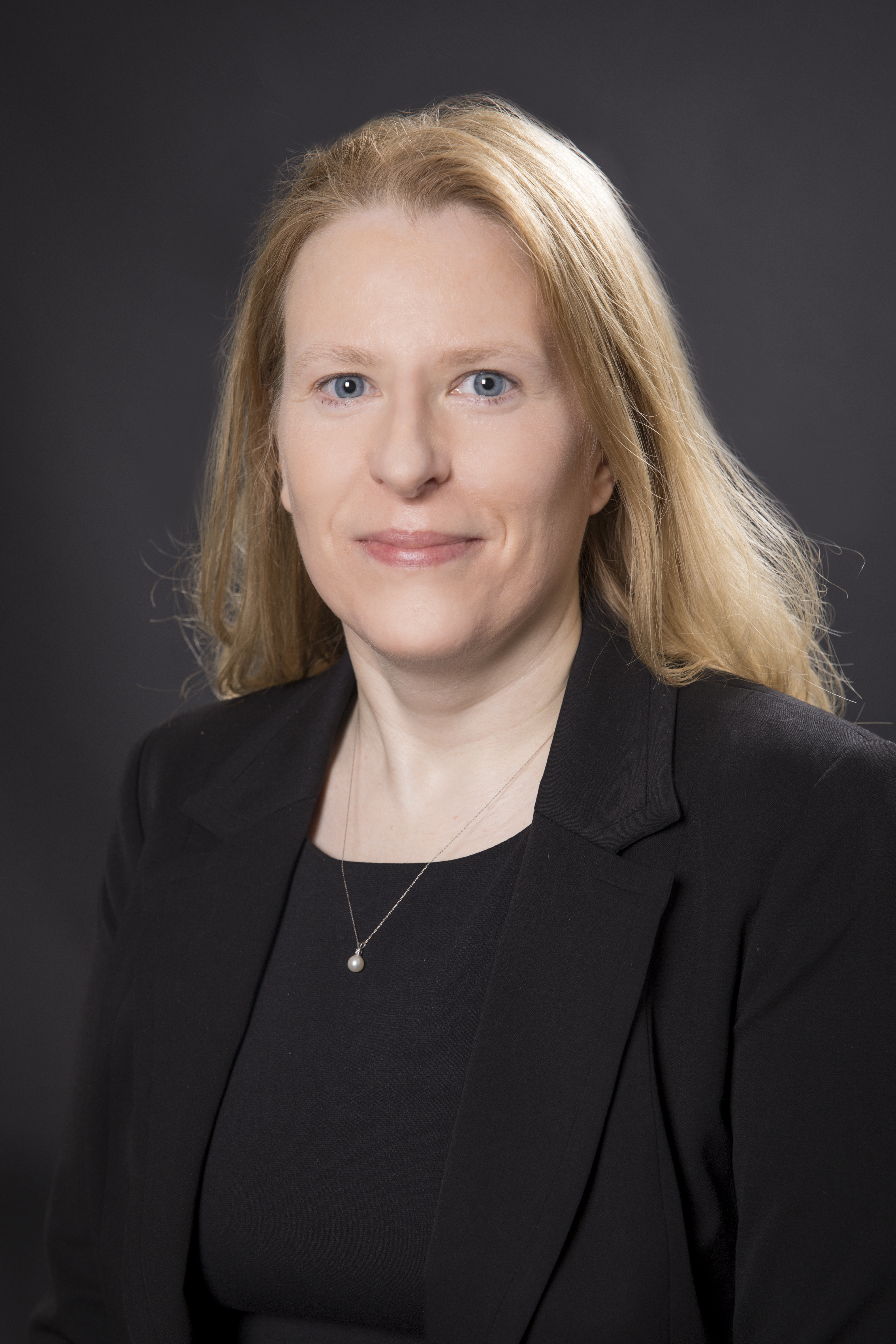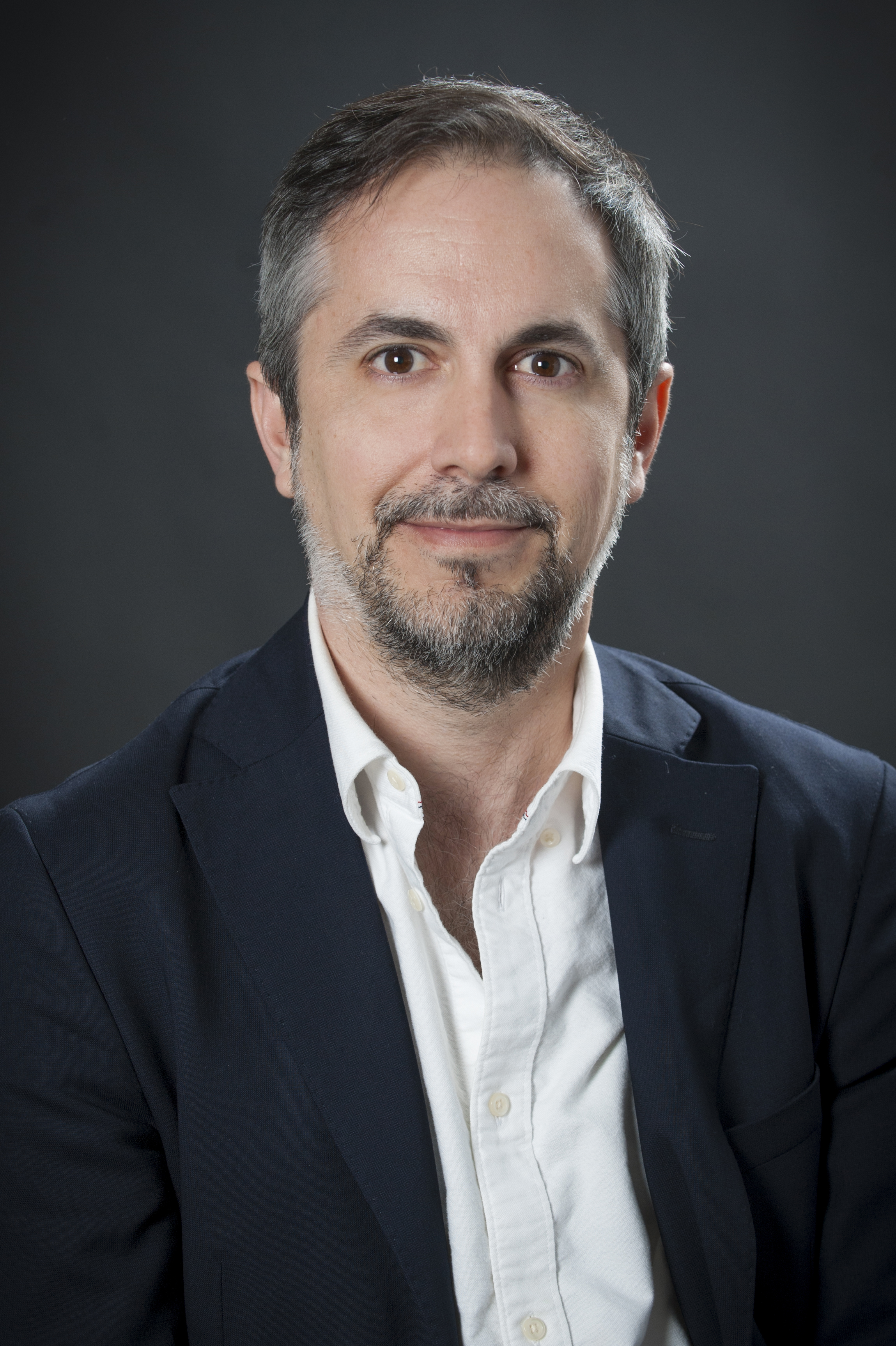The College of Liberal Arts and Sciences at the University of Iowa has named two faculty members to the honor of Collegiate Scholar, which recognizes faculty for excellence as evidenced in their promotion record at the time of their candidacy for promotion to the rank of full professor. The 2019-21 Collegiate Scholars are Amanda Haes of the Department of Chemistry and Luis Martín-Estudillo of the Department of Spanish and Portuguese.
Interim Dean Joe Kearney said the two are richly deserving of the recognition.
"Professors Haes and Martín-Estudillo are leaders in their disciplines and outstanding teachers," Kearney said. "Our college is delighted to count them among our faculty, and I congratulate them on their significant achievements that have led to their being named Collegiate Scholars."
 Collegiate Scholar Amanda J. Haes joined the faculty in the Chemistry Department at the University of Iowa in 2006, after earning a Ph.D. in Chemistry from Northwestern University. Her research group combines both experimental and computational methods to predict and exploit the size dependent properties of metal and metal oxide nanomaterials in both fundamental and applied studies in the areas of Raman spectroscopy, plasmonics, and surface-enhanced Raman scattering. Professor Haes focuses on a number of key issues related to nanoscience and nanotechnology including quality control of nanomaterials and surface chemistry, impacts of intermolecular interactions and surface selection rules on vibrational features of molecules, as well as quantitative sensor development for applications in biology, chemistry, dentistry, and environmental science. These studies are and/or have been funded by the National Science Foundation, National Institutes of Health, Office of Naval Research, and Roy J. Carver Charitable Trust. Recently, Professor Haes was selected as a “Must See” presenter at a National American Chemical Society Conference and serves as a standing member of the National Institutes of Health Instrumentation and Systems Development Study Section. In addition to her research, Professor Haes serves as Primary Investigator and Co-Director of a National Science Foundation funded Research Experience for Undergraduates summer program in the area of nanoscience and nanotechnology. She and her group have also hosted over 1,000 elementary and middle school students, teachers, and parents from local communities to the University of Iowa campus for various STEM activities.
Collegiate Scholar Amanda J. Haes joined the faculty in the Chemistry Department at the University of Iowa in 2006, after earning a Ph.D. in Chemistry from Northwestern University. Her research group combines both experimental and computational methods to predict and exploit the size dependent properties of metal and metal oxide nanomaterials in both fundamental and applied studies in the areas of Raman spectroscopy, plasmonics, and surface-enhanced Raman scattering. Professor Haes focuses on a number of key issues related to nanoscience and nanotechnology including quality control of nanomaterials and surface chemistry, impacts of intermolecular interactions and surface selection rules on vibrational features of molecules, as well as quantitative sensor development for applications in biology, chemistry, dentistry, and environmental science. These studies are and/or have been funded by the National Science Foundation, National Institutes of Health, Office of Naval Research, and Roy J. Carver Charitable Trust. Recently, Professor Haes was selected as a “Must See” presenter at a National American Chemical Society Conference and serves as a standing member of the National Institutes of Health Instrumentation and Systems Development Study Section. In addition to her research, Professor Haes serves as Primary Investigator and Co-Director of a National Science Foundation funded Research Experience for Undergraduates summer program in the area of nanoscience and nanotechnology. She and her group have also hosted over 1,000 elementary and middle school students, teachers, and parents from local communities to the University of Iowa campus for various STEM activities.
 Collegiate Scholar Luis Martín-Estudillo of the Department of Spanish and Portuguese earned his PhD in Hispanic Literatures from the University of Minnesota in 2005 and joined the University of Iowa faculty that same year, specializing in modern and contemporary Spanish literature and culture. He has also published broadly on early modern topics, European studies, and visual culture. He is the managing editor of the internationally renowned academic series Hispanic Issues and Hispanic Issues Online and co-directs the literary journal Iowa Literaria. Professor Martín-Estudillo has received the 2009-2010 Collegiate Teaching Award, the 2011-2013 Dean's Scholar Award, and two awards from the National Endowment for the Humanities. His latest books are The Rise of Euroskepticism: Europe and Its Critics in Spanish Culture (Vanderbilt University Press, 2018) and Despertarse de Europa. Arte, literatura, euroescepticismo (Cátedra, 2019). His current projects include a book-length monograph on Francisco de Goya's treatment of reading.
Collegiate Scholar Luis Martín-Estudillo of the Department of Spanish and Portuguese earned his PhD in Hispanic Literatures from the University of Minnesota in 2005 and joined the University of Iowa faculty that same year, specializing in modern and contemporary Spanish literature and culture. He has also published broadly on early modern topics, European studies, and visual culture. He is the managing editor of the internationally renowned academic series Hispanic Issues and Hispanic Issues Online and co-directs the literary journal Iowa Literaria. Professor Martín-Estudillo has received the 2009-2010 Collegiate Teaching Award, the 2011-2013 Dean's Scholar Award, and two awards from the National Endowment for the Humanities. His latest books are The Rise of Euroskepticism: Europe and Its Critics in Spanish Culture (Vanderbilt University Press, 2018) and Despertarse de Europa. Arte, literatura, euroescepticismo (Cátedra, 2019). His current projects include a book-length monograph on Francisco de Goya's treatment of reading.